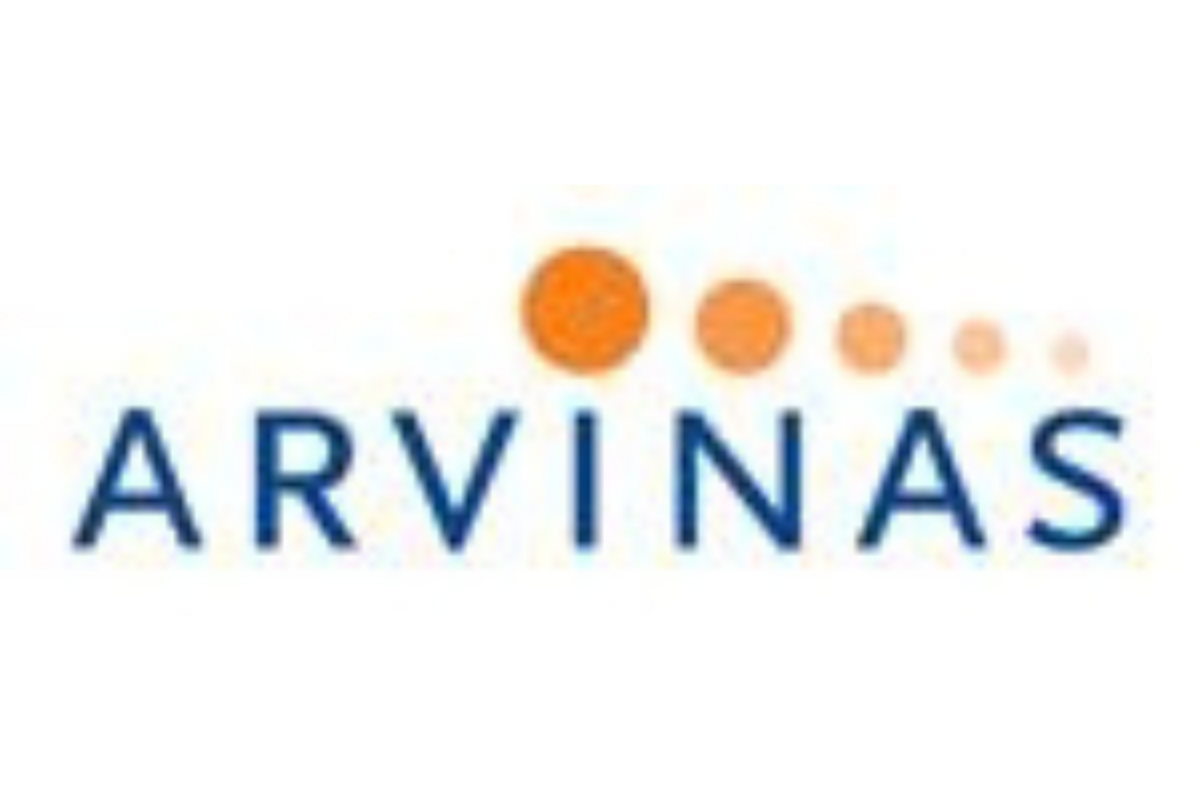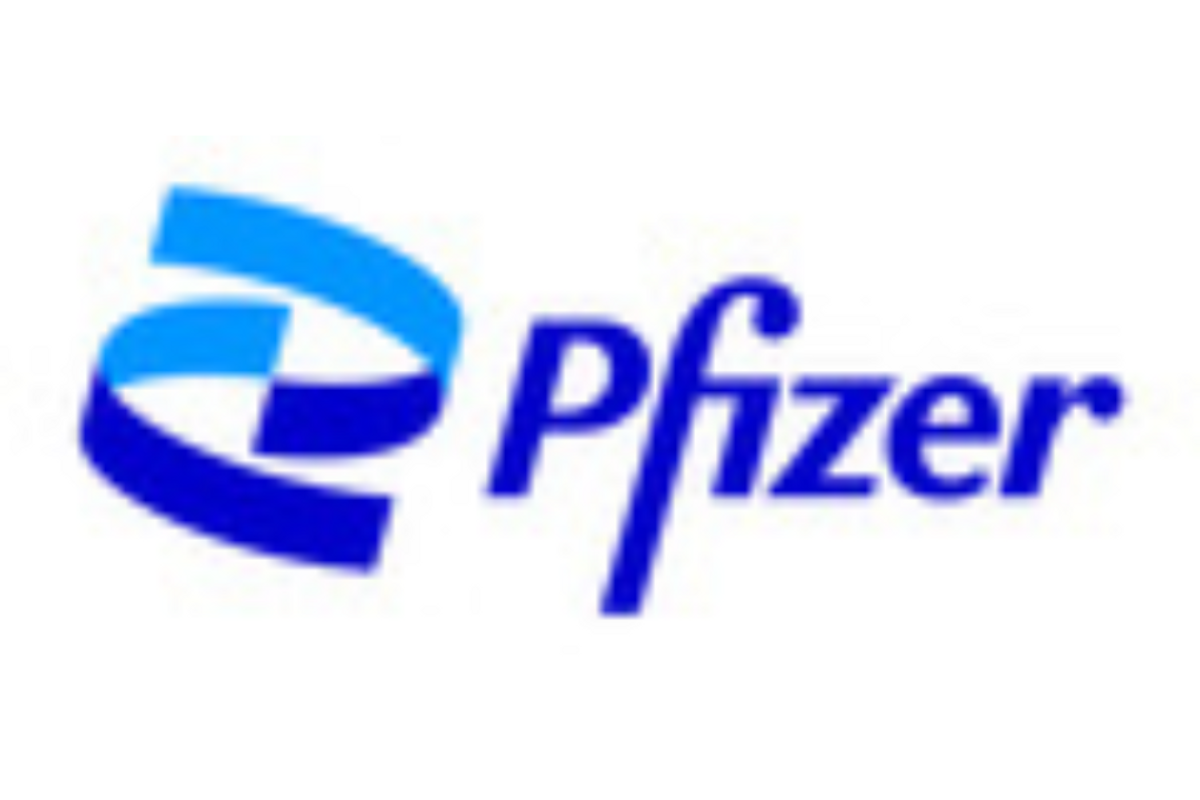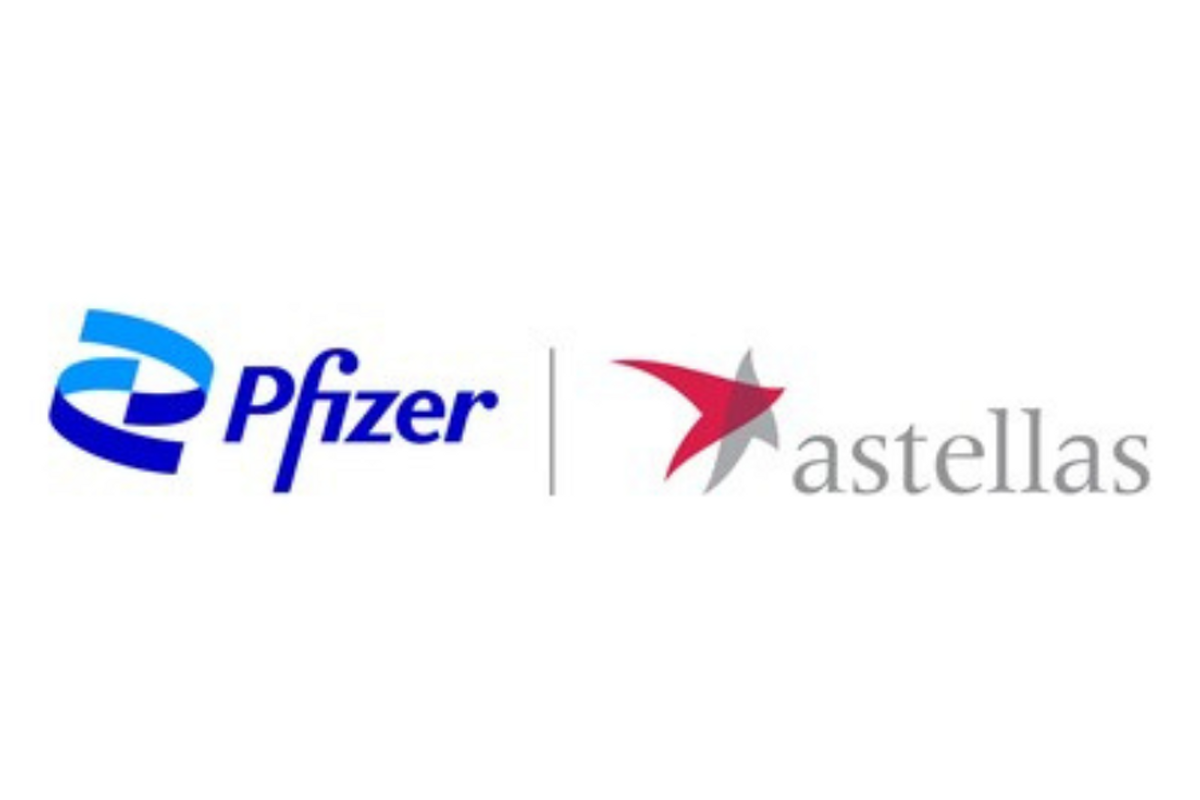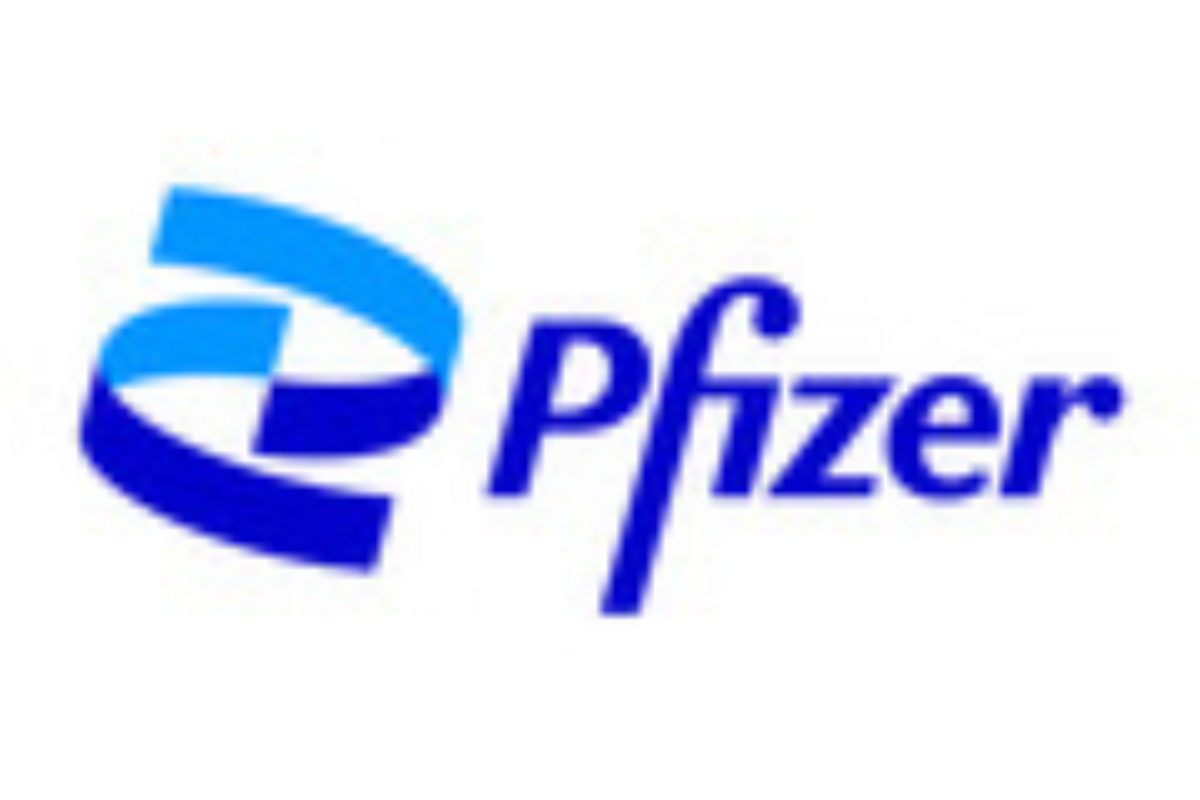- The target Prescription Drug User Fee Act (PDUFA) action date for a decision by the FDA is May 2023
Pfizer Inc. (NYSE: PFE) announced today that the U.S. Food and Drug Administration's (FDA) Antimicrobial Drugs Advisory Committee (AMDAC) voted 16 to 1 that available data support the safety and effectiveness of PAXLOVID™ (nirmatrelvir tablets and ritonavir tablets) for the treatment of mild-to-moderate COVID-19 in adult patients who are at high risk for progression to severe illness. The AMDAC's vote, while not binding, will be considered by the FDA when making its decision regarding the potential approval of PAXLOVID.
"We believe it is critical for adults who are at high risk of progression to severe COVID-19 to have access to safe and effective treatment options, like PAXLOVID, to help prevent avoidable hospitalizations and deaths," said James Rusnak, Senior Vice President and Chief Development Officer, Internal Medicine, Anti-infectives and Hospital, Pfizer. "We are encouraged by the AMDAC's positive vote today. The outcome is well supported by the strong safety and efficacy data seen both in our clinical trials and in a growing base of real-world evidence, showing that PAXLOVID helps to reduce the risk of hospitalization or death for high-risk adult patients regardless of vaccination status."
The AMDAC based its vote on the totality of scientific and real-world evidence shared by Pfizer, including safety and efficacy data from the EPIC ( E valuation of P rotease I nhibition for C OVID-19) clinical development program. This included results from the Phase 2/3 EPIC-HR study ( E valuation of P rotease I nhibition for C OVID-19 in H igh- R isk Patients), which enrolled unvaccinated, non-hospitalized adults, aged 18 years and older, with confirmed COVID-19 who are at increased risk of progressing to severe disease. The data showed an 86% reduction in risk of COVID-19-related hospitalization or death from any cause through Day 28 in patients treated with PAXLOVID within 5 days of symptoms onset, compared to placebo. The vote was further supported by results from a secondary endpoint of the Phase 2/3 EPIC-SR study ( E valuation of P rotease I nhibition for C OVID-19 in S tandard- R isk Patients) which showed the effectiveness of Paxlovid in a sub-group of non-hospitalized adults, aged 18 years and older, with confirmed COVID-19 who had at least one risk factor for progression to severe disease and who were fully vaccinated.
In addition, real-world evidence presented to the AMDAC showed that PAXLOVID's clinical profile in the post-authorization setting is consistent with the safety and efficacy conclusions from the EPIC clinical program, including observations made when the Omicron variant and its lineages were the predominant forms of SARS-CoV-2 in circulation. This real-world evidence also shows the effectiveness of PAXLOVID among vaccinated patients and patients who developed natural immunity. 1,2,3
COVID-19 continues to cause significant burden in the U.S. as case rates fluctuate and new variants and sub-variants emerge, regardless of virulence. Approximately 4,000‒5,000 hospital admissions and 500‒600 deaths are caused by the virus each day in the U.S., as of January 2023. 4 With more than 200 million adults in the U.S. at high risk of severe COVID-19, there is a critical need for treatment options in this population. 5 According to the U.S. Centers for Disease Control and Prevention (CDC), factors which could put someone at high risk of severe COVID-19 include any of the following: being aged 50 and older, obesity, diabetes (type 1 and type 2), heart conditions, smoking (current or former), physical inactivity, chronic kidney or liver disease, and cancer, among others. 6
If approved by the FDA, PAXLOVID could be the first U.S. FDA-approved oral treatment for COVID-19. The target Prescription Drug User Fee Act (PDUFA) action date for a decision by the FDA is May 2023. Under the FDA emergency use authorization (EUA), PAXLOVID is currently authorized for use in, and remains available to, adults and pediatric patients (12 years of age and older weighing at least 40 kg) at high risk of progression to severe COVID-19. In the U.S., more than 10 million treatment courses of PAXLOVID have been prescribed to date. 7
Pfizer continues to gather pediatric data from the ongoing clinical trial EPIC-Peds ( E valuation of P rotease I nhibition for C OVID-19 in Ped iatric Patient s ) and intends to submit a supplemental New Drug Application (NDA) to support the FDA approval of PAXLOVID in children at a future date. In February 2023, the European Commission (EC) granted standard Marketing Authorization (MA) of PAXLOVID for the treatment of COVID-19 in adults who do not require supplemental oxygen and who are at increased risk of the disease becoming severe.
About PAXLOVID™ (nirmatrelvir tablets and ritonavir tablets)
PAXLOVID is a SARS-CoV-2 main protease (M pro ) inhibitor (also known as SARS-CoV-2 3CL protease inhibitor) therapy. It was developed to be administered orally so that it can be prescribed early after infection, potentially helping patients avoid severe illness (which can lead to hospitalization and death). Nirmatrelvir, which originated in Pfizer laboratories, is designed to block the activity of the M pro , an enzyme that the coronavirus needs to replicate. Co-administration with a low dose of ritonavir helps slow the metabolism, or breakdown, of nirmatrelvir in order for it to remain active in the body for longer periods of time at higher concentrations to help combat the virus.
Nirmatrelvir is designed to inhibit viral replication at a stage known as proteolysis, which occurs before viral RNA replication. In preclinical studies, nirmatrelvir did not demonstrate evidence of mutagenic DNA interactions.
Current variants of concern can be resistant to treatments that work by binding to the spike protein found on the surface of the SARS-CoV-2 virus. PAXLOVID, however, works intracellularly by binding to the highly conserved M pro (3CL protease) of the SARS-CoV-2 virus to inhibit viral replication. Nirmatrelvir has shown consistent in vitro antiviral activity against the variants Alpha, Beta, Delta, Gamma, Lambda, Mu, and Omicron BA.1, BA.2, BA.2.12.1, BA.4, BA.4.6, BA.5, BF.7, BQ.1.11, BQ.1 and XBB.1.5. Work is ongoing to evaluate activity against recently identified variants as they become available for testing.
PAXLOVID is generally administered at a standard dose of 300 mg (two 150 mg tablets) of nirmatrelvir with one 100 mg tablet of ritonavir, taken together twice-daily for five days. One carton contains five blister packs of PAXLOVID, as co-packaged nirmatrelvir tablets with ritonavir tablets, providing all required doses for a full five-day treatment course. The dose for patients with moderate renal impairment (eGFR ≥30 to
For more information, please visit www.PAXLOVID.com .
U.S. FDA Emergency Use Authorization Statement
PAXLOVID has not been approved, but has been authorized for emergency use by FDA under an EUA, for the treatment of adults and pediatric patients (12 years of age and older weighing at least 40 kg) with a current diagnosis of mild-to-moderate coronavirus disease 2019 (COVID-19) and who are at high risk for progression to severe COVID-19, including hospitalization or death.
The emergency use of PAXLOVID is only authorized for the duration of the declaration that circumstances exist justifying the authorization of the emergency use of drugs and biological products during the COVID-19 pandemic under Section 564(b)(1) of the Act, 21 U.S.C. § 360bbb-3(b)(1), unless the declaration is terminated or authorization revoked sooner.
AUTHORIZED USE
The U.S. Food and Drug Administration (FDA) has issued an Emergency Use Authorization (EUA) for the emergency use of the unapproved product PAXLOVID for the treatment of adults and pediatric patients (12 years of age and older weighing at least 40 kg) with a current diagnosis of mild-to-moderate coronavirus disease 2019 (COVID-19) and who are at high risk for progression to severe COVID-19, including hospitalization or death.
LIMITATIONS OF AUTHORIZED USE
- PAXLOVID is not authorized for initiation of treatment in patients requiring hospitalization due to severe or critical COVID-19
- PAXLOVID is not authorized for use as pre-exposure or post-exposure prophylaxis for prevention of COVID-19
- PAXLOVID is not authorized for use for longer than 5 consecutive days
PAXLOVID may be prescribed for an individual patient by physicians, advanced practice registered nurses, and physician assistants that are licensed or authorized under state law to prescribe drugs.
PAXLOVID may also be prescribed for an individual patient by a state-licensed pharmacist under the following conditions:
- Sufficient information is available, such as through access to health records less than 12 months old or consultation with a health care provider in an established provider-patient relationship with the individual patient, to assess renal and hepatic function; and
- Sufficient information is available, such as through access to health records, patient reporting of medical history, or consultation with a health care provider in an established provider-patient relationship with the individual patient, to obtain a comprehensive list of medications (prescribed and non-prescribed) that the patient is taking to assess for potential drug interaction.
The state-licensed pharmacist should refer an individual patient for clinical evaluation (e.g., telehealth, in-person visit) with a physician, advanced practice registered nurse, or physician assistant licensed or authorized under state law to prescribe drugs, if any of the following apply:
- Sufficient information is not available to assess renal and hepatic function.
- Sufficient information is not available to assess for a potential drug interaction.
- Modification of other medications is needed due to a potential drug interaction.
- PAXLOVID is not an appropriate therapeutic option based on the authorized Fact Sheet for Healthcare Providers or due to potential drug interactions for which recommended monitoring would not be feasible.
PAXLOVID is not approved for any use, including for use for the treatment of COVID-19.
PAXLOVID is authorized only for the duration of the declaration that circumstances exist justifying the authorization of the emergency use of PAXLOVID under 564(b)(1) of the Food Drug and Cosmetic Act unless the authorization is terminated or revoked sooner.
IMPORTANT SAFETY INFORMATION
PAXLOVID is contraindicated in patients with a history of clinically significant hypersensitivity reactions (eg, toxic epidermal necrolysis [TEN] or Stevens-Johnson syndrome) to its active ingredients (nirmatrelvir or ritonavir) or any other components of the product.
Drugs listed in this section are a guide and not considered a comprehensive list of all drugs that may be contraindicated with PAXLOVID. The healthcare provider should consult other appropriate resources such as the prescribing information for the interacting drug for comprehensive information on dosing or monitoring with concomitant use of a strong CYP3A inhibitor such as ritonavir.
PAXLOVID is contraindicated with drugs that are highly dependent on CYP3A for clearance and for which elevated concentrations are associated with serious and/or life-threatening reactions:
- Alpha 1 -adrenoreceptor antagonist: alfuzosin
- Antianginal: ranolazine
- Antiarrhythmic: amiodarone, dronedarone, flecainide, propafenone, quinidine
- Anti-gout: colchicine
- Antipsychotics: lurasidone, pimozide
- Benign prostatic hyperplasia agents: silodosin
- Cardiovascular agents: eplerenone, ivabradine
- Ergot derivatives: dihydroergotamine, ergotamine, methylergonovine
- HMG-CoA reductase inhibitors: lovastatin, simvastatin
- Immunosuppressants: voclosporin
- Microsomal triglyceride transfer protein inhibitor: lomitapide
- Migraine medications: eletriptan, ubrogepant
- Mineralocorticoid receptor antagonists: finerenone
- Opioid antagonists: naloxegol
- PDE5 inhibitor: sildenafil (Revatio ® ) when used for pulmonary arterial hypertension
- Sedative/hypnotics: triazolam, oral midazolam
- Serotonin receptor 1A agonist/serotonin receptor 2A antagonist: flibanserin
- Vasopressin receptor antagonists: tolvaptan
PAXLOVID is contraindicated with drugs that are potent CYP3A inducers where significantly reduced nirmatrelvir or ritonavir plasma concentrations may be associated with the potential for loss of virologic response and possible resistance. PAXLOVID cannot be started immediately after discontinuation of any of the following medications due to the delayed offset of the recently discontinued CYP3A inducer:
- Anticancer drugs: apalutamide
Anticonvulsant: carbamazepine, phenobarbital, primidone, phenytoin - Cystic fibrosis transmembrane conductance regulator potentiators: lumacaftor/ivacaftor
- Antimycobacterials: rifampin
- Herbal Products: St. John's Wort ( hypericum perforatum )
There are limited clinical data available for PAXLOVID. Serious and unexpected adverse events may occur that have not been previously reported with PAXLOVID use.
Risk of Serious Adverse Reactions Due to Drug Interactions: Initiation of PAXLOVID, a CYP3A inhibitor, in patients receiving medications metabolized by CYP3A or initiation of medications metabolized by CYP3A in patients already receiving PAXLOVID, may increase plasma concentrations of medications metabolized by CYP3A. Initiation of medications that inhibit or induce CYP3A may increase or decrease concentrations of PAXLOVID, respectively. These interactions may lead to:
- Clinically significant adverse reactions, potentially leading to severe, life-threatening, or fatal events from greater exposures of concomitant medications
- Clinically significant adverse reactions from greater exposures of PAXLOVID
- Loss of therapeutic effect of PAXLOVID and possible development of viral resistance
Consult Table 1 of the Fact Sheet for Healthcare Providers for clinically significant drug interactions, including contraindicated drugs. Drugs listed in Table 1 are a guide and not considered a comprehensive list of all possible drugs that may interact with PAXLOVID. Consider the potential for drug interactions prior to and during PAXLOVID therapy; review concomitant medications during PAXLOVID therapy and monitor for the adverse reactions associated with the concomitant medications.
Anaphylaxis and other hypersensitivity reactions have been reported with PAXLOVID. Cases of Toxic Epidermal Necrolysis and Stevens-Johnson syndrome have been reported with ritonavir, a component of PAXLOVID (refer to NORVIR prescribing information). If signs and symptoms of a clinically significant hypersensitivity reaction or anaphylaxis occur, immediately discontinue PAXLOVID and initiate appropriate medications and/or supportive care.
Hepatotoxicity: Hepatic transaminase elevations, clinical hepatitis, and jaundice have occurred in patients receiving ritonavir. Therefore, caution should be exercised when administering PAXLOVID to patients with pre-existing liver diseases, liver enzyme abnormalities, or hepatitis .
Because nirmatrelvir is co-administered with ritonavir, there may be a risk of HIV-1 developing resistance to HIV protease inhibitors in individuals with uncontrolled or undiagnosed HIV-1 infection.
Adverse events in the PAXLOVID group (≥1%) that occurred at a greater frequency (≥5 subject difference) than in the placebo group were dysgeusia (6% and
The following adverse reactions have been identified during post-authorization use of PAXLOVID. Because these reactions are reported voluntarily from a population of uncertain size, it is not always possible to reliably estimate their frequency or establish a causal relationship to drug exposure.
Immune System Disorders: Anaphylaxis, hypersensitivity reactions
Gastrointestinal Disorders: Abdominal pain, nausea
General Disorders and Administration Site Conditions: Malaise
Required Reporting for Serious Adverse Events and Medication Errors: The prescribing healthcare provider and/or the provider's designee is/are responsible for mandatory reporting of all serious adverse events and medication errors potentially related to PAXLOVID within 7 calendar days from the healthcare provider's awareness of the event.
Submit adverse event and medication error reports to FDA MedWatch using one of the following methods:
- Online: https://www.fda.gov/medwatch/report.htm
- Complete and submit a postage-paid FDA Form 3500 and returning by mail/fax
- Call 1-800-FDA-1088 to request a reporting form
In addition, please provide a copy of all FDA MedWatch forms to: www.pfizersafetyreporting.com , or by fax (1-866-635-8337) or phone (1-800-438-1985).
PAXLOVID is a strong inhibitor of CYP3A and may increase plasma concentrations of drugs that are primarily metabolized by CYP3A. Co-administration of PAXLOVID with drugs highly dependent on CYP3A for clearance and for which elevated plasma concentrations are associated with serious and/or life-threatening events is contraindicated. Co-administration with other CYP3A substrates may require a dose adjustment or additional monitoring.
Nirmatrelvir and ritonavir are CYP3A substrates; therefore, drugs that induce CYP3A may decrease nirmatrelvir and ritonavir plasma concentrations and reduce PAXLOVID therapeutic effect.
Pregnancy: There are no available human data on the use of nirmatrelvir during pregnancy to evaluate for a drug-associated risk of major birth defects, miscarriage, or adverse maternal or fetal outcomes. Published observational studies on ritonavir use in pregnant women have not identified an increase in the risk of major birth defects. Published studies with ritonavir are insufficient to identify a drug-associated risk of miscarriage . There are maternal and fetal risks associated with untreated COVID-19 in pregnancy.
Lactation: There are no available data on the presence of nirmatrelvir in human or animal milk, the effects on the breastfed infant, or the effects on milk production. A transient decrease in body weight was observed in the nursing offspring of rats administered nirmatrelvir. Limited published data reports that ritonavir is present in human milk. There is no information on the effects of ritonavir on the breastfed infant or the effects of the drug on milk production. The developmental and health benefits of breastfeeding should be considered along with the mother's clinical need for PAXLOVID and any potential adverse effects on the breastfed infant from PAXLOVID or from the underlying maternal condition. Breastfeeding individuals with COVID‑19 should follow practices according to clinical guidelines to avoid exposing the infant to COVID‑19.
Contraception: Use of ritonavir may reduce the efficacy of combined hormonal contraceptives. Advise patients using combined hormonal contraceptives to use an effective alternative contraceptive method or an additional barrier method of contraception.
Pediatrics: PAXLOVID is not authorized for use in pediatric patients younger than 12 years of age or weighing less than 40 kg. The safety and effectiveness of PAXLOVID have not been established in pediatric patients. The authorized adult dosing regimen is expected to result in comparable serum exposures of nirmatrelvir and ritonavir in patients 12 years of age and older and weighing at least 40 kg as observed in adults, and adults with similar body weight were included in the trial EPIC-HR.
Systemic exposure of nirmatrelvir increases in renally impaired patients with increase in the severity of renal impairment. No dosage adjustment is needed in patients with mild renal impairment. In patients with moderate renal impairment (eGFR ≥30 to to 150 mg nirmatrelvir and 100 mg ritonavir twice daily for 5 days. Prescriptions should specify the numeric dose of each active ingredient within PAXLOVID. Providers should counsel patients about renal dosing instructions. PAXLOVID is not recommended in patients with severe renal impairment (eGFR
No dosage adjustment of PAXLOVID is needed for patients with either mild (Child-Pugh Class A) or moderate (Child-Pugh Class B) hepatic impairment. No pharmacokinetic or safety data are available regarding the use of nirmatrelvir or ritonavir in subjects with severe hepatic impairment (Child-Pugh Class C); therefore, PAXLOVID is not recommended for use in patients with severe hepatic impairment.
Please see Fact Sheet for Healthcare Providers and Fact Sheet for Patients, Parents, and Caregivers .
About Pfizer: Breakthroughs That Change Patients' Lives
At Pfizer, we apply science and our global resources to bring therapies to people that extend and significantly improve their lives. We strive to set the standard for quality, safety and value in the discovery, development and manufacture of health care products, including innovative medicines and vaccines. Every day, Pfizer colleagues work across developed and emerging markets to advance wellness, prevention, treatments and cures that challenge the most feared diseases of our time. Consistent with our responsibility as one of the world's premier innovative biopharmaceutical companies, we collaborate with health care providers, governments and local communities to support and expand access to reliable, affordable health care around the world. For more than 170 years, we have worked to make a difference for all who rely on us. We routinely post information that may be important to investors on our website at www.Pfizer.com . In addition, to learn more, please visit us on www.Pfizer.com and follow us on Twitter at @Pfizer and @Pfizer News , LinkedIn , YouTube and like us on Facebook at Facebook.com/Pfizer .
Disclosure Notice
The information contained in this release is as of March 16, 2023. Pfizer assumes no obligation to update forward-looking statements contained in this release as the result of new information or future events or developments.
This release contains forward-looking information about Pfizer's efforts to combat COVID-19 and PAXLOVID (including a New Drug Application pending with the FDA and a FDA Antimicrobial Drugs Advisory Committee vote in favor of approval of PAXLOVID for adult patients who are at high risk for progression to severe illness from COVID-19, intention to submit a supplemental New Drug Application to support the FDA approval of PAXLOVID in children at a future date, the anticipated timing of data readouts, regulatory submissions, regulatory approvals or authorizations, and anticipated manufacturing, distribution and supply), involving substantial risks and uncertainties that could cause actual results to differ materially from those expressed or implied by such statements. Risks and uncertainties include, among other things, the uncertainties inherent in research and development, including the ability to meet anticipated clinical endpoints, commencement and/or completion dates for clinical trials, regulatory submission dates, regulatory approval dates and/or launch dates, as well as risks associated with preclinical and clinical data, including the possibility of unfavorable new preclinical, clinical or safety data and further analyses of existing preclinical, clinical or safety data; the ability to produce comparable clinical or other results including efficacy, safety and tolerability profile observed to date, in additional studies or in larger, more diverse populations following commercialization; uncertainties regarding the commercial impact of the results of the EPIC-SR and EPIC-PEP trials; the ability of PAXLOVID to maintain efficacy against emerging virus variants; the risk that serious and unexpected adverse events may occur that have not been previously reported with PAXLOVID use; the risk that preclinical and clinical trial data are subject to differing interpretations and assessments, including during the peer review/publication process, in the scientific community generally, and by regulatory authorities; whether regulatory authorities will be satisfied with the design of and results from these and any future preclinical and clinical studies; whether and when any drug applications or submissions to request emergency use or conditional marketing authorization for any potential indications for PAXLOVID or any of Pfizer's other products or product candidates may be filed in particular jurisdictions and if obtained, whether or when such emergency use authorization or licenses will expire or terminate; whether and when regulatory authorities in any jurisdictions may approve any applications or submissions for PAXLOVID or any of Pfizer's other products or product candidates that may be pending or filed (including the New Drug Application pending with the FDA), which will depend on myriad factors, including making a determination as to whether the product's benefits outweigh its known risks and determination of the product's efficacy and, if approved, whether it will be commercially successful; decisions by regulatory authorities impacting labeling or marketing, manufacturing processes, safety and/or other matters that could affect the availability or commercial potential of PAXLOVID or any of Pfizer's other products or product candidates, including the authorization or approval of products or therapies developed by other companies; the risk that other companies may produce superior or competitive products; risks related to the availability of raw materials to manufacture or test PAXLOVID; manufacturing capabilities or capacity; the risk that we may not be able to maintain manufacturing capacity or access to logistics or supply channels commensurate with global demand, which would negatively impact our ability to supply the estimated numbers of courses of PAXLOVID within the projected time periods; whether and when additional purchase agreements will be reached or existing agreements will be completed or re-negotiated; the risk that demand for any products may be reduced, no longer exist or not meet expectations, which may lead to excess inventory on-hand and/or in the channel or reduced revenues; uncertainties regarding the impact of COVID-19 on Pfizer's business, operations and financial results; and competitive developments.
A further description of risks and uncertainties can be found in Pfizer's Annual Report on Form 10-K for the fiscal year ended December 31, 2022 and in its subsequent reports on Form 10-Q, including in the sections thereof captioned "Risk Factors" and "Forward-Looking Information and Factors That May Affect Future Results", as well as in its subsequent reports on Form 8-K, all of which are filed with the U.S. Securities and Exchange Commission and available at www.sec.gov and www.pfizer.com .
______________________________
1 Lewnard JA, McLaughlin JM, Malden D, et al. Effectiveness of nirmatrelvir-ritonavir against hospital admission or death: a cohort study in a large US healthcare system. Lancet ID: https://doi.org/10.1016/S1473-3099(23)00118-4
2 Ganatra S, Dani SS, Ahmad J, et al. Oral Nirmatrelvir and Ritonavir in Non-hospitalized Vaccinated Patients with Covid-19 [published online ahead of print, 2022 Aug 20]. Clin Infect Dis. 2022;ciac673. doi:10.1093/cid/ciac673
3 Aggarwal NR, Molina KC, Beaty LE, et al. Real-world use of nirmatrelvir–ritonavir in outpatients with COVID-19 during the era of omicron variants including BA.4 and BA.5 in Colorado, USA: a retrospective cohort study. The Lancet Infectious Diseases 2023. DOI: https://doi.org/10.1016/S1473-3099(23)00011-7 .
4 Centers for Disease Control and Prevention. COVID Data Tracker: Daily Update for the United States. Available at: https://covid.cdc.gov/covid-data-tracker/#datatracker-home .
5 Li, H. L., & Cheung, B. M. (2020). The proportion of adult Americans at risk of severe covid-19 illness. Journal of General Internal Medicine, 36(1), 259–261. https://doi.org/10.1007/s11606-020-06325-9
6 To learn more about who may be at high risk of progression to severe COVID-19, visit the Centers for Disease Control and Prevention
7 IQVIA National Prescription Audit data through February 24, 2023, containing retail pharmacy, mail order and long-term care channels; U.S. Department of Health and Human Services data through February 2023, for non-retail channels. Note: This information is an estimate derived from the use of information under license from the following IQVIA information service: National Prescription Audit, for the period January 1, 2022-Feburary 24, 2023. IQVIA expressly reserves all rights, including rights of copying, distribution and republication.
View source version on businesswire.com: https://www.businesswire.com/news/home/20230316005635/en/
Pfizer Contacts:
Media Relations
+1 (212) 733-1226
PfizerMediaRelations@pfizer.com
Investor Relations
+1 (212) 733-4848
IR@pfizer.com







